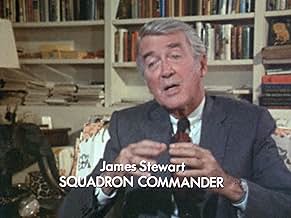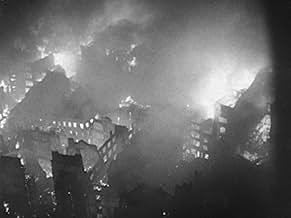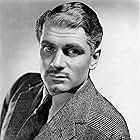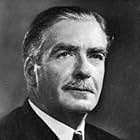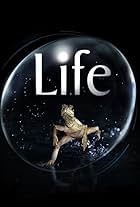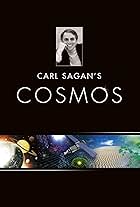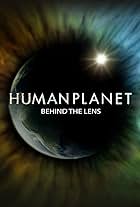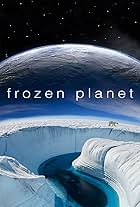A groundbreaking 26-part documentary series narrated by the actor Laurence Olivier about the deadliest conflict in history, World War II.A groundbreaking 26-part documentary series narrated by the actor Laurence Olivier about the deadliest conflict in history, World War II.A groundbreaking 26-part documentary series narrated by the actor Laurence Olivier about the deadliest conflict in history, World War II.
- Won 1 BAFTA Award
- 2 wins & 3 nominations total
Browse episodes
Storyline
Did you know
- TriviaAlbert Speer's testimony in the series is now considered highly unreliable. Speer considerably downplayed his involvement in Nazi atrocities. After his death a letter he wrote in December 1971 proved he had full knowledge of the Holocaust throughout its course, despite his repeated public denials.
- ConnectionsEdited into Screenwipe: Episode #3.1 (2007)
Featured review
This series, produced at probably the most propitious time following the events of the second World War, is on a scale of value that stands far above any individual's presumption to criticize.
The timing of World at War's production in 1974, amounting to some three decades after the events of the war, permits an accurate relating of events in a manner uncoloured by residual propaganda and slant. The passage of thirty years allows the telling to be backed up by an impressive and fascinating panoply of the very individuals involved, ranging from some of the highest military and political figures down to the field soldiers, civilians, and such survivors of the death camps as have remained to bear witness to the unimaginable inhumanities of which civilized humans are capable. Most approaching or well into their senior years, the interviewed subjects have had enough time to reflect on their experiences and in most instances have had enough time for whatever propaganda and fervor may have affected them in the past to have receded away, leaving only the memories of what they saw and what they did.
The information that these survivors give, strikingly reinforced by the postures and expressions they display while telling their part, give their stories all the more impact. Such names as Ira Eaker, Adolph Galland, Louis Mountbatten, Albert Speer, Gertrude Junge (Hitler's personal secretary)... the list is far too long to relate.
Today, within the lifetime of the survivors of this enormous lesson in the hideous price of political ambition, are young people who chant the same sort of militaristic and nationalistic war promotion as led to WW2. The DVD series we discuss here ought to comprise the core of a mandatory history subject in schools, that the lessons bought at such a horrible cost in those days should not have been wasted but should be taken to heart by those who did not see firsthand the terrible price.
I am almost done watching the 11 disk set, having seen most of the series when a local TV channel aired it more than 10 years ago. It has lost none of its poignancy to me, indeed has become even more of a magnificent chronicle of some of the very darkest days of human times.
The highest possible rating seems unworthy of being applied to this presentation. I think the value of this series is beyond counting.
The timing of World at War's production in 1974, amounting to some three decades after the events of the war, permits an accurate relating of events in a manner uncoloured by residual propaganda and slant. The passage of thirty years allows the telling to be backed up by an impressive and fascinating panoply of the very individuals involved, ranging from some of the highest military and political figures down to the field soldiers, civilians, and such survivors of the death camps as have remained to bear witness to the unimaginable inhumanities of which civilized humans are capable. Most approaching or well into their senior years, the interviewed subjects have had enough time to reflect on their experiences and in most instances have had enough time for whatever propaganda and fervor may have affected them in the past to have receded away, leaving only the memories of what they saw and what they did.
The information that these survivors give, strikingly reinforced by the postures and expressions they display while telling their part, give their stories all the more impact. Such names as Ira Eaker, Adolph Galland, Louis Mountbatten, Albert Speer, Gertrude Junge (Hitler's personal secretary)... the list is far too long to relate.
Today, within the lifetime of the survivors of this enormous lesson in the hideous price of political ambition, are young people who chant the same sort of militaristic and nationalistic war promotion as led to WW2. The DVD series we discuss here ought to comprise the core of a mandatory history subject in schools, that the lessons bought at such a horrible cost in those days should not have been wasted but should be taken to heart by those who did not see firsthand the terrible price.
I am almost done watching the 11 disk set, having seen most of the series when a local TV channel aired it more than 10 years ago. It has lost none of its poignancy to me, indeed has become even more of a magnificent chronicle of some of the very darkest days of human times.
The highest possible rating seems unworthy of being applied to this presentation. I think the value of this series is beyond counting.
- choatelodge
- Jan 21, 2005
- Permalink
- How many seasons does The World at War have?Powered by Alexa
Details
- Runtime52 minutes
- Color
- Sound mix
- Aspect ratio
- 1.33 : 1
Contribute to this page
Suggest an edit or add missing content

